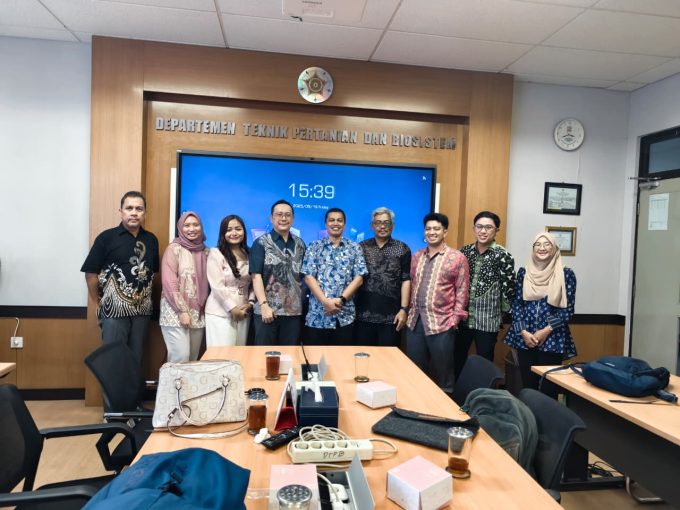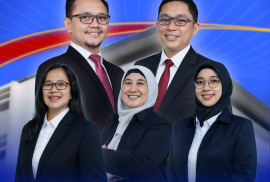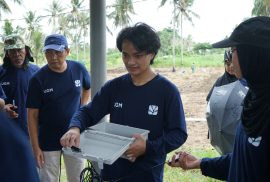
Yogyakarta, September 19, 2025 — The Department of Agricultural and Biosystems Engineering (DTPB), Faculty of Agricultural Technology, Universitas Gadjah Mada (FTP UGM) held a coordination meeting with a delegation from Ciputra University Surabaya as a follow-up to the Flagship Impactful Research Consortium (RIKUB). This meeting marks the beginning of a strategic collaboration between the two institutions under the flagship program initiated by the Ministry of Higher Education, Science, and Technology (Kemdiktisaintek). The RIKUB program is designed to fund collaborative research projects that deliver tangible innovations with significant impacts on society and industry.
This consortium research, led by Dr. Joko Nugroho Wahyu Karyadi, who also serves as leader of team 1, carries the theme “Sustainability Strategies and Technology Adoption as Drivers of Innovation and Efficiency in the Small and Medium-Scale Coffee Industry.”

From the DTPB FTP UGM team, Dr. Bayu Dwi Apri Nugroho, who serves as leader of team 3 in this consortium research, attended along with Dr. Chandra Setyawan, Dr. Makbul Hajad, Dr. Ngadisih, Dr. Ansita Gupitakingkin Pradipta, and Dr. Dwi Ayuni. Meanwhile, from Ciputra University, the delegation was represented by Yoseva Maria Pujirahayu, MBA., Dr. Teofilus, who also serves as leader of team 2 in this consortium research, and Dr. Fahrul Riza. The discussion covered multiple aspects of the research, ranging from methodology, task allocation, to defining milestones and timelines. This project aims to integrate the expertise of both institutions in developing postharvest technologies, improving product quality, and designing sustainable business models for smallholder coffee farmers and processors.
This research strongly aligns with several Sustainable Development Goals (SDGs), particularly those focused on inclusive economic and industrial development. Specifically, it contributes to SDG 8 (Decent Work and Economic Growth) by enhancing efficiency and adding value for small and medium-scale coffee actors, thereby generating better job opportunities and boosting local economic growth. It also supports SDG 9 (Industry, Innovation, and Infrastructure) by advancing and applying new technologies that strengthen the competitiveness of Indonesia’s coffee industry. With its emphasis on sustainability, the project also contributes to SDG 12 (Responsible Consumption and Production) by promoting more efficient and environmentally friendly production practices.

Through this research, the team aspires to produce innovations that go beyond academic publications and can be directly implemented in the field to deliver real-world impact. The outcomes are expected to offer concrete solutions to the challenges faced by the small and medium-scale coffee industry, from limited access to technology and low efficiency to sustainability issues. Ultimately, the findings of this research are anticipated to serve as a roadmap for government, industry, and communities in building a stronger, more competitive, and globally recognized coffee ecosystem.




